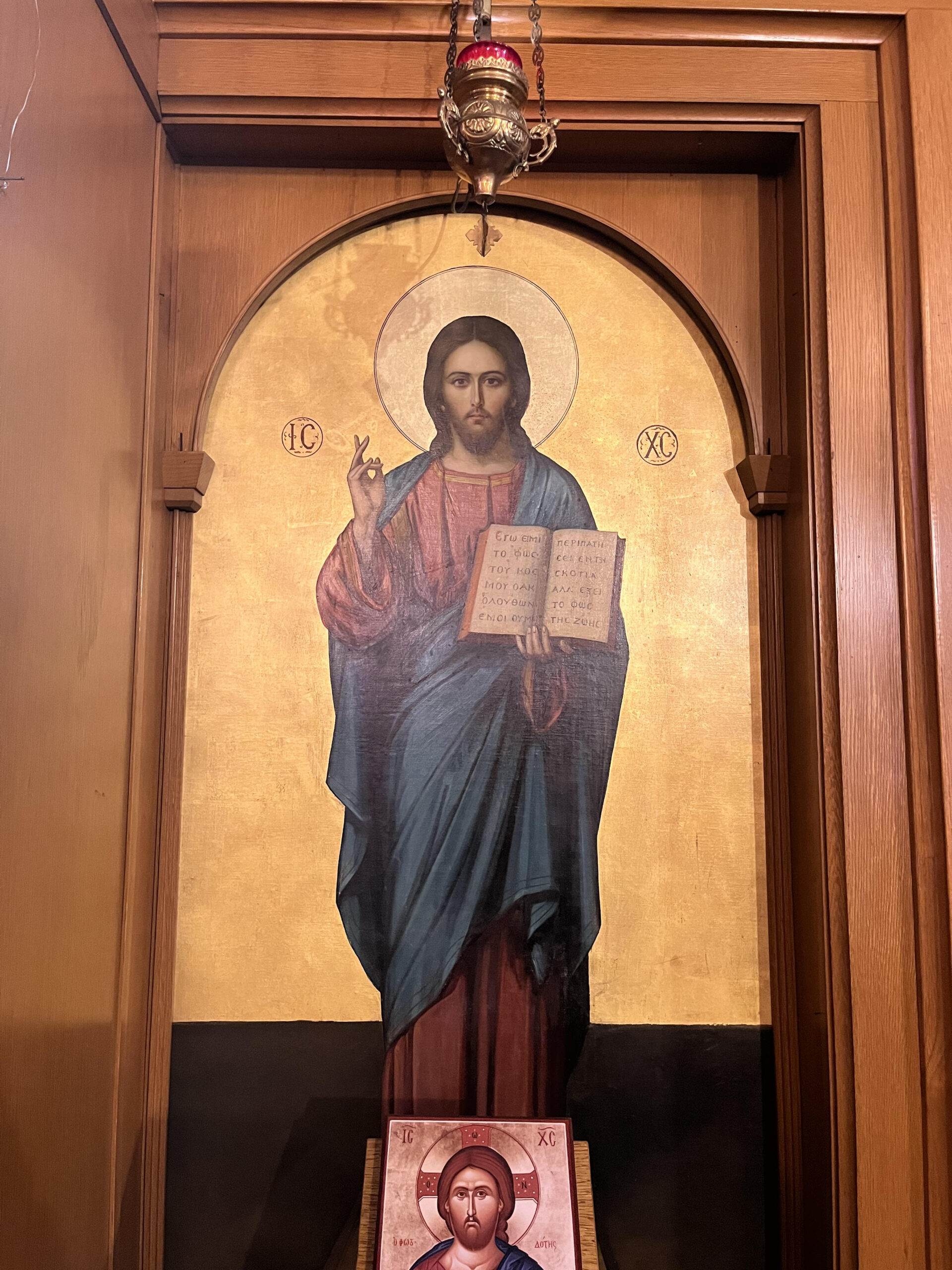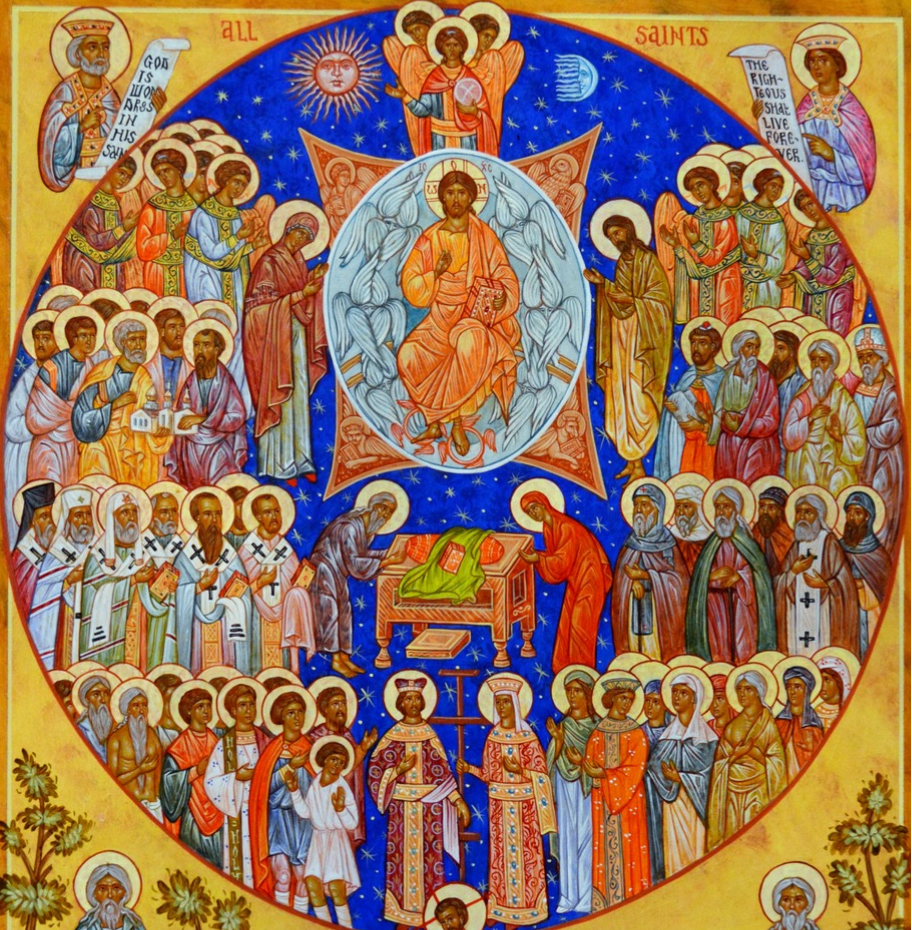Now many signs and wonders were done among the people by the hands of the apostles. And they were all together in Solomon’s Portico. None of the rest dared join them, but the people held them in high honor. And more than ever believers were added to the Lord, multitudes both of men and women, so that they even carried out the sick into the streets, and laid them on beds and pallets, that as Peter came by at least his shadow might fall on some of them. The people also gathered from the towns around Jerusalem, bringing the sick and those afflicted with unclean spirits, and they were all healed. But the high priest rose up and all who were with him, that is, the party of the Sadducees, and filled with jealousy they arrested the apostles and put them in the common prison. But at night an angel of the Lord opened the prison doors and brought them out and said, “Go and stand in the temple and speak to the people all the words of this Life.”
Acts 5: 12-20 (Epistle of Thomas Sunday)
Christ is Risen!
Because we will be discussing the Gospel of Thomas Sunday as part of the Post-Resurrection Gospels, we will only be discussing the Epistle of Thomas Sunday.
The theme of the Scriptures on Pascha focused on making a new start. The week after Pascha, called Bright Week, or Renewal Week, in the Church, has that also as the focus. The “Bright” is for the clean souls we are supposed to take away from the Resurrection. The “Renewal” reinforces the idea that we are supposed to make a new start.
Whenever someone makes a new start or a renewed effort in their Christianity, the devil lurks closely by, hoping to distract and create doubt. Not only does the Gospel of Thomas Sunday recount what happened a week after the Resurrection but it touches on this subject of doubt. The Epistle does as well.
The Book of Acts is read throughout the Paschal Season. The Epistles of St. Paul are letters to the early churches addressing problems with the early communities that still challenge our communities today. The Book of Acts, by contrast, is a narrative history of the early Church. It recounts the actions of the Apostles in establishing the Christian church.
Today’s passage begins by talking about the “many signs and wonders (that) were done among the people by the hands of the Apostles.” (Acts 5:12) The very next verse, however, speaks of doubt. Though people held the Apostles in high honor, “none of the rest joined them”. (5:13) Why? Was it fear? Doubt? This seems in conflict with verse 5:14, which says that “more than ever believers were added to the Lord, multitudes of men and women.” It seems that in the early Church, just like now, many people were added to the body of believers but few were added to the body of leaders.
The faith of these early believers was very strong. People brought those afflicted with sickness and unclean spirits to be healed, hoping that even Peter’s shadow would fall on them when he passed by. That is faith.
The reaction of the High Priest and the Sadducees was one of jealousy and anger and they had the Apostles thrown into prison. An angel came and unlocked the prison doors and told the Apostles to go out and speak to all the people about the Christian life.
We see the seeds of faith, zeal, doubt, boldness, and hesitancy all wrapped up into one short passage. We see the zeal of the Apostles. We see their faith to allow themselves to be thrown into prison, believing that God would watch over them. We see the faith of the multitudes, who brought those who were sick to the Apostles, believing that they could heal them. We see the doubt of the multitudes to jump in and help the Apostles. We also see the hesitancy for leadership, but the eagerness to “consume” the words of the Apostles. If the Book of Acts is about the establishment of the early Church, there are also lessons for the modern Church to be taken from today’s reading.
The first is that we need the faith and the zeal of these early Christians to spread the Christian message. Second, we need people to jump in with the “apostles”, i.e. the church leadership, the clergy, to help spread the message. It is not just a few that should be reaching the multitudes, but we should be equipping others for this work as well. There will be those who object, the modern-day “Sadducees”, who will try to stop the work of the Church. The believers will come with faith, but in many instances lack the zeal to help spread the message. And finally, the message remains the same, “the words of this Life,” (5:20) meaning the words of Christ shared in this life, speaking about the Kingdom of Heaven, eternal Life.
O Life, You rose from the sepulcher, even though the tomb was secured with a seal, O Christ God. And though the doors had been bolted, You came to Your disciples, O Resurrection of all. Through them You renew a right spirit in us, according to Your great mercy. (Apolytikion, Feast of Thomas Sunday, Trans. by Fr. Seraphim Dedes)
Go to church to hear the message, study the message each day, and in your own way, do your part to further the message!

